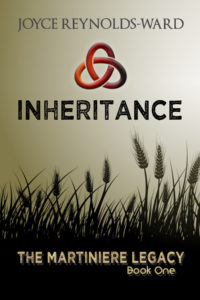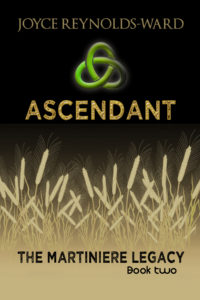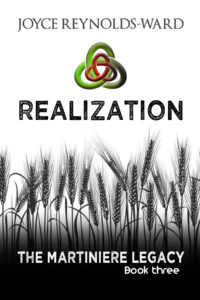I started out 2020 feeling horribly sick.
No exaggeration. About a week after we got back from Portland in December, a few days after Christmas, I came down with an unusual gut bug that knocked me flat. It was annoying because I was working on this exciting new project that I planned to use as a what-the-hell, let’s see if something happens with tradpub big book. Most of these bugs knock me down for a couple of days, but this one kept me tired out for weeks and affected what I could and couldn’t eat for much longer than usual. My brain was fuzzy. I kept looking up norovirus and shaking my head because it wasn’t a match. But it was also clearly something I’d not had before, because my body wasn’t reacting in its typical manner to the usual gastroenteritis flare. New Year’s Eve featured a binge watch of Good Omens with my husband because I figured I needed something fun and positive to bring in 2020, and I was sick of reading books at that point.
At that point Covid-19 was just a whisper on the horizon. When I went back to working on the big project, I incorporated reading I’ve done for years about pandemics into the world I was building for this new book, then called The Ruby Project. The G9 virus was polio-like in that it often left survivors with serious side effect syndromes. I was thinking about polio when I created the G9, but also some accounts of Ebola survivors as well.
It’s not like thinking about pandemics is a new thing for me. I read The Hot Zone back when it came out; the same for Laurie Garrett’s The Coming Plague. Then, when my son was showing rabbits in 4H and I was a leader as well as a Fair Small Animals Division superintendent, a new-to-the-US virus popped up in rabbits. Calicivirus, otherwise known as Rabbit Hemorrhagic Disease (as well as some other names). While in a different class of hemorrhagic virus from Ebola (Ebola is a filovirus, RHD a calicivirus), the effect was essentially the same. Rapid onset illness and death. But while Ebola in humans is a body-fluid-borne illness, RHD in rabbits is airborne.
And at the time no one really knew how effectively RHD spread or how quickly it could mutate and jump species.
I looked into writing a pandemic novel based on the spread of a RHD-like virus. The insidiousness of RHD isn’t just that it’s airborne, it’s that it is persistent and, unlike Covid-19, soap and water doesn’t get rid of it. Calicivirus is a damnably persistent virus that does transmit via formites (i.e., particles on shoes, surfaces, etc) as well as being airborne. But I rapidly backed away from it because things were just too damn grim. I couldn’t live in that headspace to write.
Nonetheless, I started slipping plague and pandemic elements into the backstories of what I wrote. In my short story Slow Dancing in 3/4 Zombie Time, (available here), the story isn’t so much about zombies as it is about a post-pandemic, post-apocalyptic scenario where a father has to make choices about his family’s survival. If you look closely, the backstory of The Netwalk Sequence series includes plagues caused by war machines and alien artifacts. The backstory of the Goddess’s Honor series postulates that a magical curse created at an Empress’s funeral as part of a leadership battle between siblings ends up causing a virulent world-wide plague that decimates the population of one continent. When the losing sibling flees to that continent, the surviving peoples welcome their presence For Reasons, primarily to fill a political vacuum in one of the hardest-hit peoples. It almost happens again in a later generation when the feud is reawakened.
And then there’s The Martiniere Legacy, formerly known as The Ruby Project. My initial use of the plague/pandemic theme was not at all based on Covid-19, but on that regular reading I’ve done about pandemics. I knew that sooner or later we’d be hit by a Big Nasty, and that would cause hardships. Heck, when I look back to my earliest Netwalk Sequence notes, I was postulating that it would be happening (along with civil disorder) right about….now.
(I do wish I could find the notes I wrote in 1992 where I break things out based on the two possible outcomes of the general election. My vague recall of those projections was rather grim, no matter who got elected. Now I’m regretting that I didn’t find a means to become a more visible pundit, because based on what I was writing in the 90s, my projections ended up playing out in a reasonably accurate manner)
So I had a couple of mysterious plague/pandemic issues hit in the backstory.
And then, when I was close to finishing Inheritance and realizing that I was working on a trilogy, in late February and early March, Covid-19 exploded.
I got sick again, this time with something flu-like.
This time I wasn’t looking for comparisons to norovirus and gastroenteritis in my moments when I felt well enough to look things up online, but between Covid-19 (such as we knew then) and flu. At the time there was a minor mention that perhaps this bug had a gut component. But my late-December/early January illness didn’t fit what we knew then about the spread of Covid-19.
Unlike the earlier bug, this one behaved pretty much like what I would expect from flu. A nasty, godawful flu, but flu nonetheless. Except that it really hit me hard.
I kept writing. As Covid-19 exploded and we went into lockdown, I completed Ascendant. As resistance to lockdown soared and the Black Lives Matter protests happened, I completed Realization.
At this point, I’m in an editing phase with The Martiniere Legacy, all three books. I’ve considered incorporating more references to Covid-19 in the books. Eventually I decided that no, I wasn’t going to do that, for three reasons.
1.) The setting is 2055. We still don’t know what an accurate reflection of the impact of Covid-19 will be several years out on peoples’ behavior, but going by the responses to the 1918 flu and polio, there may not be much in the way of behavioral changes. Economic and political–oh hell yes, this is a major disruptor.
2.) I have to go back and create different mindsets for behavioral impacts related to disease transmission. To do it right means some pretty intensive rewrites, and writing projections. No. I’d much rather write that from scratch.
3.) I’m not a writer who does well trying to chase current trends in long form writing, and I’m hit or miss in short form. Some people are very good at coming up with these topical ideas quickly for both long form and short form work. I need more time to process the impact of these trends. Part of this is just due to the way I think when extrapolating from current events. I need time to read, think, scribble notes, and then start shaping characters and stories. If anthology calls appear that match something I’m already processing, I can jump on a trend in short form. More often than not, though, I just can’t do it. The work is superficial (to my reading), and I don’t work well that way.
My near-future science fiction work after this will include Covid-19 behavioral and societal impacts, because then I’ll be building stuff from the ground up and I can see trends better. But outside of a very few points in The Martiniere Legacy, Covid-19 is not the bad bug du jour. The unnamed flu that triggers Gabe’s panicked separation and divorce from Ruby–yes. The G9 that cripples Gabe–yes. And my two bugs that I experienced during the writing of the Legacy are mildly reflected in the work.
More than that–no. Not this go-round.
The Martiniere Legacy: Book One, Inheritance; Book Two, Ascendant; and Book Three, Realization will be released in Fall 2020, along with side stories and sketches. More specific information can be found in my newsletter which comes out toward the end of each month. Sign up for my newsletter at https://tinyletter.com/JoyceReynolds-Ward for release dates.





